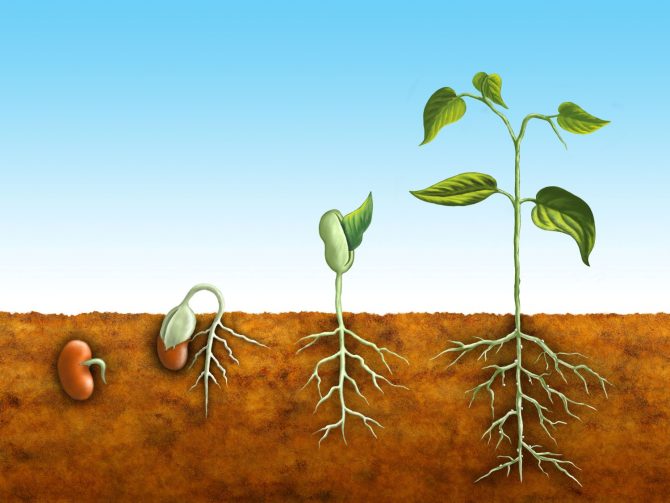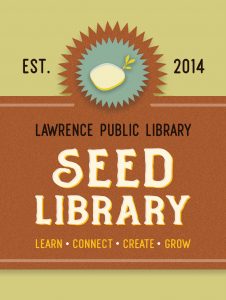"Your heart is full of fertile seeds, waiting to sprout." -Morihei Ueshiba

As we crawl with bated breath out of the desolate winter landscape and into the sunny and syrupy relief of spring, consider checking out our fabulous Seed Library that runs through the end of April (or until seeds run out!). We have a big lineup of free seed library events with local organizations for any interested hearts.
 On Saturday, April 6th there is a Planting Ceremony with the Fruit Tree Community Choir.
On Saturday, April 6th there is a Planting Ceremony with the Fruit Tree Community Choir.
In this event we will reimagine [a] public space’s capacity to nourish our needs for connection and care. We will be planting an orchard on library grounds and serenading it into being. All are welcome to let their voices harmonize and get some dirt under their nails or simply be present at the Ceremony this spring.
Speaking of seeds...I've never met one I didn't like, including seeds of knowledge! (Great segue, right?)
Your library has millions of seeds of this kind. It has a system as any good resource does, meaning it has a carefully-considered organization, best practices, and workflows. Other systems that we're expected to learn as we "adult": healthcare, school, banking. Oh, and taxes! So fun.
The difference between those systems and a library is that you don't have to be proficient at understanding a library and its nuances to benefit. But it helps. It's the difference between paging through 3,700 results to find a particular book that you know has "women" in it using a simple keyword search versus finding the exact title that you're looking for within two seconds by using the "title" feature (or filters such as the year it was published or whether it's nonfiction versus fiction).
Generally, there's a learning curve to understanding how to navigate any system. Even when I was a small child, I needed to learn how to navigate processes for say, Girl Scouts or kindergarten (and yeah, they both gave me plenty of worried nerves). It's this writer's opinion that part of learning anything new takes 1) willingness to be inexperienced and vulnerable, 2) willingness to make mistakes, 3) willingness to ask for help and 4) the ability to continue even when stymied by mistakes. Oh, and bandwidth to take in new information.

If everything else is relatively stable in the rest of your life, absorbing new information about a system is doable, leaving you with a feeling of accomplishment and mastery. Which is lovely, right?
But sometimes it feels too overwhelming to learn new information if you're riding the rougher waters of life for weeks or months (or even years!) at a time.
It's an indication that your mind is likely running on several tracks to survive and feel safe and therefore, needs to prioritize by importance. Maybe learning the nuances of the Dewey Decimal System doesn't make your top 12 (or 100) this year! If you sometimes feel overwhelmed searching our large collection, this is where your friendly library staff can help. We'll show you how to navigate what we call our "catalog" and/or simply locate the materials for you if today is just not your day for new information.
As someone who works at the Ask Desk, I've discovered that a smile can be enough to create an opening for questions. However, some people prefer to find what they need on their own and go home. Some appreciate connection and a bit of conversation. All of this is ok and good.
Finding reliable information is still a skill that can be learned, taught, and even loved, between human beings and if handled correctly, is more than the sum of its parts. It's not merely the passing on of information as a product, although that clearly also has a value. There's something a bit ineffable when you consider: what is the value of learning and knowledge? Is it the ability to choose a lifestyle that feels most authentic to you? Is it the intellectual freedom to grow in a way that suits you and your loved ones? Is it the ability to contribute and communicate in this hurting world? A librarian wouldn't dare tell you. I think the grey area is an important piece of what I embrace and appreciate about our work. Each person's freedom to choose their own intellectual path. The uncertainty intimately tied with seeking knowledge. The meaning-making is not for anyone, including library staff, to editorialize. Providing content and channeling you to the right materials, is.
appreciate about our work. Each person's freedom to choose their own intellectual path. The uncertainty intimately tied with seeking knowledge. The meaning-making is not for anyone, including library staff, to editorialize. Providing content and channeling you to the right materials, is.
If your reference question goes beyond looking up the title of a book, that's where our librarians can help with a reference "interview". We're trained to ask you the right questions to uncover what the information need is and the right fit of resources or materials. They will most often be free, fit your timeline for said need, and are reliable sources of information.
Please remember if you find yourself hesitating to ask questions: you're welcome here, whether or not you're 100% sure of what you're searching for.



Add a comment to: I Never Knew a Seed I Didn’t Like